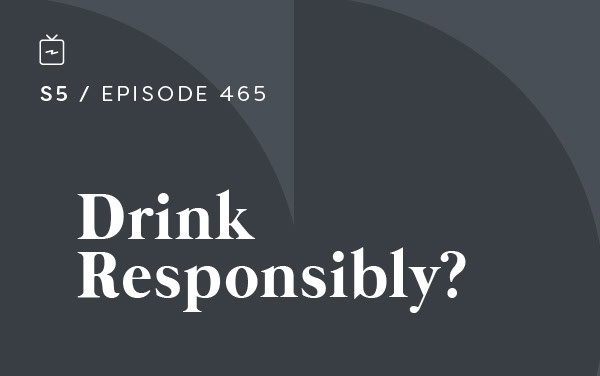
by Kris Oyen | Jan 15, 2024 | Podcast
Podcast: Play in new window | Download
Subscribe to the Recovery Elevator Podcast Apple Podcasts | | More
Episode 465 – Drink Responsibly?
Today we have Kevin. He is 44 years old and lives in Cleveland, OH. He took his last drink on April 28th, 2018.
I want to give a shout out to our DRY January REstore cohort. We’re 1/2 way there, you all are doing a fantastic job, I’ll see you all tonight.
On January 27th we start our six-week alcohol-free ukelele course. This course is brought to you by Kala Brand.
Better Help: www.betterhelp.com/elevator – 10% off your first month. #sponsored
[03:09] Thoughts from Paul:
One of the main goals at Recovery Elevator is to soften the stigma surrounding alcohol addiction and recovery. Another goal is to give listeners permission to shred the shame and recover our authentic selves along the way.
The phrase “Drink Responsibly” is such a cop out and doesn’t do anything but place blame on the drinker. Alcohol is the most addictive drug on the planet, and you won’t see other drugs proclaiming that you use the substance responsibly. We can do the “Drink Responsibly” thing way better and at the same time bring more people together in community from both sides of the aisle to heal.
A favorite NA beverage company of Paul’s, GO Brewing and Recovery Elevator have partnered up to release 180 six packs of their award-winning Sunbeam Pilsner. GO Brewing was started by a fellow member in the recovery space, Joe Chura. This is two companies who have a similar goal, uniting, in attempts to shred the shame around alcohol addiction.
Pick up your limited edition RE Sunbeam Pils, use the code elevator at checkout for 15% off and free shipping on orders over $40.
Andrew Huberman – What Alcohol Does to Your Body, Brain & Health
Exact Nature: https://exactnature.com/RE20
[10:20] Paul introduces Kevin:
Kevin is 44 years old and lives in Cleveland area, he is the head of coaching for the Reframe app and a former accountant. Kevin is married and for fun he enjoys attending his daughter’s sporting events, reading and just relaxing when he isn’t working.
Kevin says his drinking began in college where he was in a fraternity and played sports. His drinking transferred into his career where there was a lot of stress, happy hours, and deadline parties where binge drinking was a way to socialize.
Kevin and his wife got married when he was 23 and had their daughter when he was 27. His drinking increased as a way to cope with the high stress of his career. After some blood work found him diagnosed with fatty liver, he tried moderation and different attempts at taking breaks from alcohol.
Without much success at controlling his drinking on his own, Kevin eventually decided to look into therapy with his wife’s support. He developed a journaling practice and would talk with his therapist while working on quitting and made it 60 days.
Several work and life events found Kevin trying to moderate the drinking again. He made the decision to commit to 61 days and then continued to extend the timeline. Kevin was reading a lot and listening to podcasts. His therapist helped him a lot as well. He started an Instagram page for himself, but after some time decided to go public and share more. He got a lot of positive feedback which fueled him to try and start recovery coaching. He became involved with Reframe app soon after.
Kevin’s best sober moment: his first sober concert with his daughter.
Kevin’s parting piece of guidance: practice. Find a platform that resonates with you and keep practicing.
Instagram
Recovery Elevator YouTube
Sobriety Tracker iTunes
Recovery Elevator
Go big, because eventually we all go home.
I love you guys.
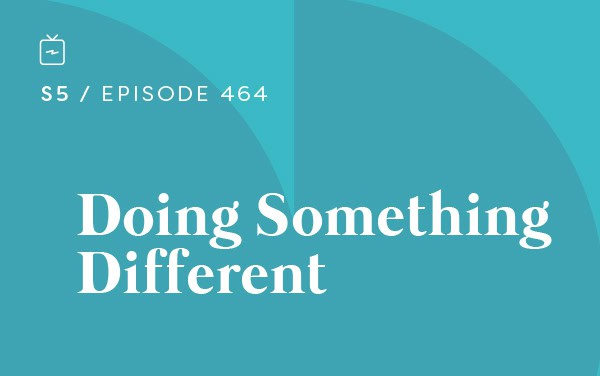
by Kris Oyen | Jan 8, 2024 | Podcast
Podcast: Play in new window | Download
Subscribe to the Recovery Elevator Podcast Apple Podcasts | | More
Episode 464 – Doing Something Different
Today we have Danielle. She is 34 years old and lives in Northern Ontario. She took her last drink on August 20th, 2023.
On January 27th we start our six-week alcohol-free ukelele course. This course is brought to you by Kala Brand.
Better Help: www.betterhelp.com/elevator – 10% off your first month. #sponsored
[03:22] Thoughts from Paul:
Paul shares the history of Recovery Elevator, how launching the podcast gave him accountability and how the listeners helped it expand over the last 464 consecutive weeks.
The big message he wants to share here, however, is that if you are going to quit drinking or are seeking an alcohol-free life then you’re going to have to do something different. Probably something very different than what you’re currently trying. And it doesn’t have to suck.
You 100% can ditch the booze, and we are here to help. But do yourself a favor join Café RE, go to an AA meeting, check out Smart Recovery, take a sober ukulele class. There are more recovery pathways today than there ever have been, and we feel there is no right or wrong way to quit drinking.
We have partnered with Sober Link. You can find some tips and can sign up for a $50 off promo code.
[10:54] Kris introduces Danielle:
Danielle just passed the 100-day mark at the time of recording. She is 34 and is married with two cats and two dogs. She lives in Northern Ontario, and she is self employed as a copywriter and website designer. She enjoys hiking, paddleboarding, reading, yoga and lots of writing.
Danielle says she started experimenting in high school around age 15. She wanted to be part of the crowd but as an introvert found it exhausting and preferred connecting with small groups at the parties. In college, she leaned more onto weed which she feels helped with her sleep and anxiety issues.
She met her now husband when she was 22. They were living in Australia for a time and up until this point Danielle was just smoking and drinking socially. Her husband was a daily drinker and Daneille started drinking wine when they would travel.
After moving back home, they made friends with their neighbors and would spend time after work drinking with them. She was drinking at home, drinking with the neighbors, and drinking at the farm where she had her horse. Her life revolved around when and where she could drink but she typically only felt comfortable drinking at home with close friends.
After a new job and a move to a smaller town, Danielle thought that the change in environment would help her cut back on her bad habits. She found the change isolated, and after her office closed, she was forced to work remotely. She and her husband were drinking earlier in the day. Throughout this time, they had good times but there began to be fights and behavior changes for both of them. Drinking was becoming less and less enjoyable and they found themselves talking more and more about what life would be like without alcohol.
Her journey to recovery found her listening to podcasts and starting to write about what she wanted to get out of quitting drinking. After a while, they both decided to join Café RE. One day Daneille and her accountability partner were talking about journaling and came up with the idea of a writing course to share with the RE community. Danielle says that using that as a form of service really helped her with her own recovery.
Danielle’s unexpected positives of ditching the booze: losing the anxiety she had for many years. The community she has gained in recovery.
Danielle’s favorite resources in recovery: podcasts, quit lit, chats in the community, journaling.
Danielle’s parting piece of guidance: you can’t shame yourself out of the addiction.
Instagram
Recovery Elevator YouTube
Sobriety Tracker iTunes
Recovery Elevator
You’re the only one that can do this, but you don’t have to do it alone.
I love you guys.
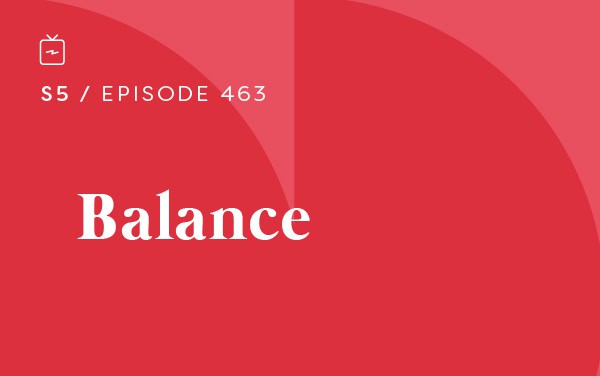
by Kris Oyen | Jan 1, 2024 | Podcast
Podcast: Play in new window | Download
Subscribe to the Recovery Elevator Podcast Apple Podcasts | | More
Episode 463 – Addicted to not Being Addicted
Today we have Zach. He is 34 years old and lives in Richmond, VA. He took his last drink on July 18th, 2023.
Our Dry January course RESTORE starts tonight, so get your register on, and join us at 8 PM EST for our first live session later this evening.
On January 27th we start our six-week alcohol-free ukelele course. This course is brought to you by Kala Brand.
Check out our sponsor Go Brewing. Use the code ELEVATOR for 15% off.
[04:14] Thoughts from Paul:
Today we are talking about change.
Research suggests that only 9% of people that make New Years resolutions complete them. Many quit well before February even starts. The main reason that these resolutions fail is our energies swing all the way to one side of the spectrum. In other words, we are out of balance.
With drinking, we find ourselves addicted to alcohol. Then the mind comes up with the idea that we need to not be addicted to alcohol, then we become addicted to the idea of not being addicted. This is equally out of balance. So that’s the word I want to plant with you today as we begin the new year is balance. On our sobriety journey, we cannot fight, or go to battle with an alcohol addiction.
So, in terms of quitting drinking and not going overboard in the theatre of war against yourself, let’s keep it simple. All you have to today is one thing, that is not pick up a drink. Are we quitting for a lifetime? God no. That would be out of balance. We are only quitting for today.
Café RE – Use the promo code OPPORTUNITY to waive the set-up fee
[10:36] Paul introduces Zach:
Zach was originally from California but currently lives in Richmond, VA. He has two sons who live nearby with their mother. He is a technical writer for the federal government. He enjoys the gym and spending time outdoors.
Zach grew up in a home where alcohol wasn’t very present. He attended a small college where it wasn’t very prevalent either. He took his first drink after finishing college and was a normal drinker throughout his 20’s.
Drinking didn’t become a problem for Zach until he was laid off of a job and his mental health started suffering. He was processing things from childhood and started having panic attacks and his sleep was an issue. He started drinking to help him sleep but over time it progressed to a daily habit.
Zach says he got a wake-up call when he and his wife split up. He was able to get a few months of sobriety, but he ended up back drinking after the divorce was finalized. He had relocated for a new job and didn’t know anyone. He had too much free time to drink heavily when he wasn’t spending time with his kids.
Zach was drinking at work and ended up having a meeting with HR where he finally told someone he had a problem. While he felt relieved to share this, he still struggled to quit and eventually lost the job. After his lease was up, he moved out of state to stay with some friends that were going to help him get back on his feet.
When he relapsed while the friends were out of town, Zach ended up trying Antabuse to help him quit drinking once and for all. He attended rehab and then went to sober living. After a while he decided he needed to move back closer to his kids and was able to find a place in Richmond with the help of a friend in recovery.
Zach tried a few different recovery modalities, but AA ended up working best for him. He got a sponsor who he has spoken to every day since they met. His sponsor has helped him realize that he cannot return to drinking. Zach is starting to see the benefits of not drinking, both physically and mentally. Community has been vital to Zach and his recovery.
Zach’s favorite resources: an app called The Big Book, and the RE podcast while at the gym.
Zach’s strategy to beat a craving: a walk and a phone call.
Instagram
Recovery Elevator YouTube
Sobriety Tracker iTunes
Recovery Elevator
It all starts from the inside out.
I love you guys.
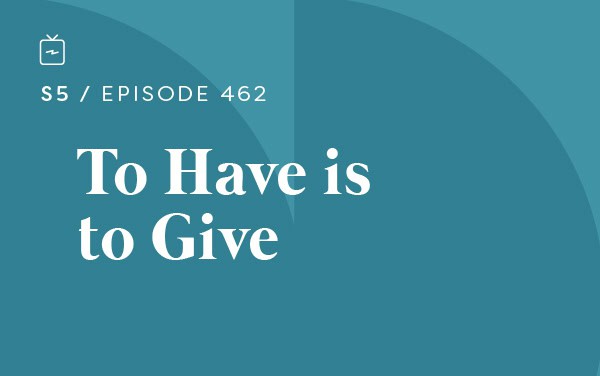
by Kris Oyen | Dec 25, 2023 | Podcast
Podcast: Play in new window | Download
Subscribe to the Recovery Elevator Podcast Apple Podcasts | | More
Episode 462 – To Have is to Give
Today we have Tana. She is 44 years old and lives in Washington State. She took her last drink on July 30th, 2020.
Registration for our DRY January course RESTORE is now open! It’s time to get your alcohol-free connect on and say adios to the booze. Our first session is Monday, January 1st at 5 pm PST or 8 pm EST. The most common issue I hear is that people don’t have a network of others who don’t drink. Well, Our Restore is going to solve that and you’re going to learn all about alcohol, alcohol addiction, and how to beat it.
Paul shares an article where scientists say the mystery of how red wine headaches occur may be solved. Paul’s opinion is that it’s a waste of time, but here’s the link for curiosity’s sake.
Exact Nature: https://exactnature.com/RE20
[03:40] Thoughts from Paul:
In 1935, A.A. Founder Bill W, found that when he shared his experience, strength and hope to another individual who was struggling with alcohol, then Bill magically had the strength to remain sober. It shows the universal law of “to give is to have”.
Today I give you the message of Merry Christmas. To plant the seed, that to give is to have. To have is to give. Most of us have learned a way, or path that didn’t work. Or maybe it kind of worked but was or is incredibly painful. For me, this path required numbing agents, alcohol being the most potent one.
Now I know there are a couple thousand of you who listen to this podcast first thing on Monday morning when the episodes are released. Fantastic. How blessed I am to get you ear first thing in the morning. Ask not what Santa, or your family can give to you, but ask what you can give to them.
Better Help: www.betterhelp.com/elevator – 10% off your first month. #sponsored
[00:00] Kris introduces Tana:
Tana is from Washington state, and she works in healthcare and recently has found a new passion for teaching yoga. She has three children, two who have recently graduated college and a 10-year-old daughter. She recently separated from her husband. She enjoys backpacking, hiking, running and dance.
Tana and her siblings were raised by her father who recently passed away. Their mother was an alcoholic, and Tana knew from an early age that she was suffering. Her exposure to alcohol was limited to family members drinking socially.
When Tana was a teenager some home changes found her moving in with her mother. At this point she was exposed to her mother’s addictions firsthand and over time it made her depressed and wanting to rebel, so she began smoking cigarettes, but not really drinking. She moved out at 17 to start her own life.
After starting her own life, Tana had two children and got married. Over time she realized the relationship wasn’t good, so she left and just focused on her kids. Her only addiction issues were the cigarettes which she went to great lengths to hide out of shame.
A few years later, Tana remarried and when she was pregnant with her third child, she quit smoking, and her husband encouraged her to quit for good. Tana found running to be a good replacement for smoking, but after her daughter got older, she would no longer have time to run. Her drinking became her tool to cope.
Tana started to feel shame about her drinking and questioning it. She started listening to podcasts and discovering books that she thought may help her break the cycle and become the best mom she could be. When AA didn’t feel like a good fit, Tana found community in Café RE. She finally felt safe to be herself, make friends, attend meetups, and enjoys giving back to others.
Tana’s plan in recovery moving forward: keep learning and growing.
Tana’s parting piece of guidance: it’s different for all of us. It takes what it takes and for each of us that looks a little different. Just don’t give up – never quit quitting.
Instagram
Recovery Elevator YouTube
Sobriety Tracker iTunes
Recovery Elevator
You’re the only one that can do this RE, but you don’t have to do it alone.
I love you guys.
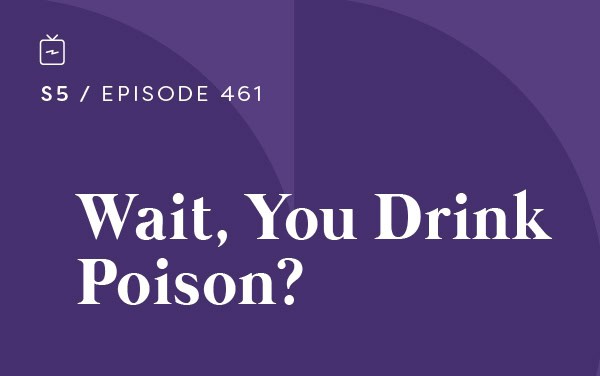
by Kris Oyen | Dec 18, 2023 | Podcast
Podcast: Play in new window | Download
Subscribe to the Recovery Elevator Podcast Apple Podcasts | | More
Episode 461 – Wait, You Drink Poison?
Today we have Gill. She’s 33 years old from Lexington, MA and took her last drink on November 9th, 2019.
Update from Ryan H on episode 457 – “I’m going on two weeks now and I’m definitely starting to notice a difference in my mood, digestive issues and weight.”
Registration for our intensive DRY January course RESTORE is now open! It’s time to get your alcohol-free connect on and say adios to the booze. The most common issue I hear is that people don’t have a network of others who don’t drink. Well, Our Restore is going to solve that and you’re going to learn a ton about alcohol, alcohol addiction, and how to beat it.
Better Help: www.betterhelp.com/elevator – 10% off your first month. #sponsored
[03:02] Intro:
Paul shares two Instagram accounts that will help you on your sobriety journey:
Drop the Bottle – all about sobriety and ditching the booze.
A.L.A.D.D.I.N – not about sobriety, but it is entertaining and when it’s creator shares his art with the world, it gives others permission to do the same.
Athletic Greens: https://www.athleticgreens.com/recovery
[08:22] Paul introduces Gill:
Gill is 33 and lives right outside of Boston, MA. She has a husband and a cat. She loves playing video games, going to concerts and travelling. She teaches chemistry courses and labs at a college in Boston. She is also the host of the Sober Powered podcast.
Gill says she didn’t start drinking until grad school. She didn’t have opportunities in high school because she was bullied and didn’t hang out with people that drank. She started because she feared that if she didn’t then no one would like her. Once she tried it a few times and got her first buzz, she enjoyed it so much it became a regular thing for her.
Gill started having repercussions from drinking early on. She didn’t know her limits, had frequent opportunities to drink and would end up getting sick and having blackouts. Gill thought all of this was normal and that everyone drank like her. Gill says that her performance in school started suffering and there was multiple drink fueled fights with her boyfriend (who is now her husband).
Gill ended up leaving program and decided to start teaching instead. She learned that drinking helped with the stress she experienced while teaching. Over time she switched from wine to vodka to save money. Her tolerance increased, and she started struggling with hangovers at work.
Trying to moderate and make rules around her drinking was frustrating for Gill. People didn’t want her to quit and when she would bring it up others would downplay it and tell her she was fine.
Gill’s depression was getting worse, and she started waking up with uncontrollable anxiety often. Once she began having suicidal thoughts, she got scared. Gill decided to take a break for 90 days to lower her tolerance and thought she would be cured. During that time her suicidal thoughts and anxiety lessened. She completed the 90 days and started drinking again and the consequences quickly followed.
After her last rule was compromised, she realized she had to accept that she had to let alcohol go indefinitely. While it was scary at first, Gill says she also felt a sense of peace.
Gill didn’t think she needed meetings when she first quit but doesn’t recommend people try to do it alone. After the pandemic started, Gill found she had the time to go to therapy, she started listening to podcasts, and doing a lot of research on the science around alcohol addictions. She wanted to share what she had learned with others, so she started her own podcast: Sober Powered.
Gill’s advice for the holidays: you don’t have to go to everything if you are worried that you’re going to drink or that you can’t stay sober, don’t go.
Gill’s go-to tool to get past a craving: walking, rage walking.
Instagram
Recovery Elevator YouTube
Sobriety Tracker iTunes
Recovery Elevator
I love you guys.
Go big because eventually we’ll all go home.







